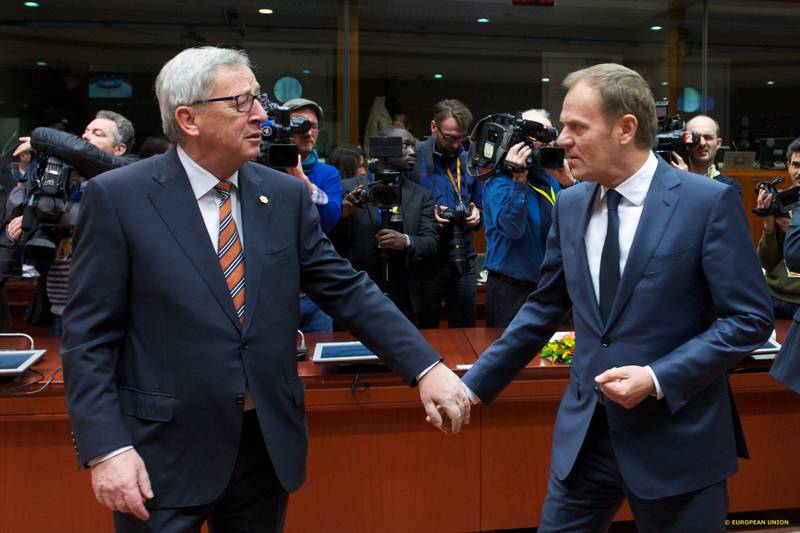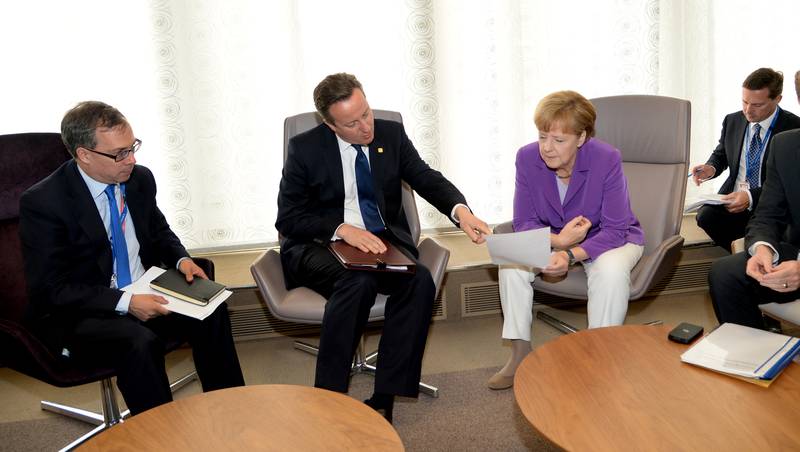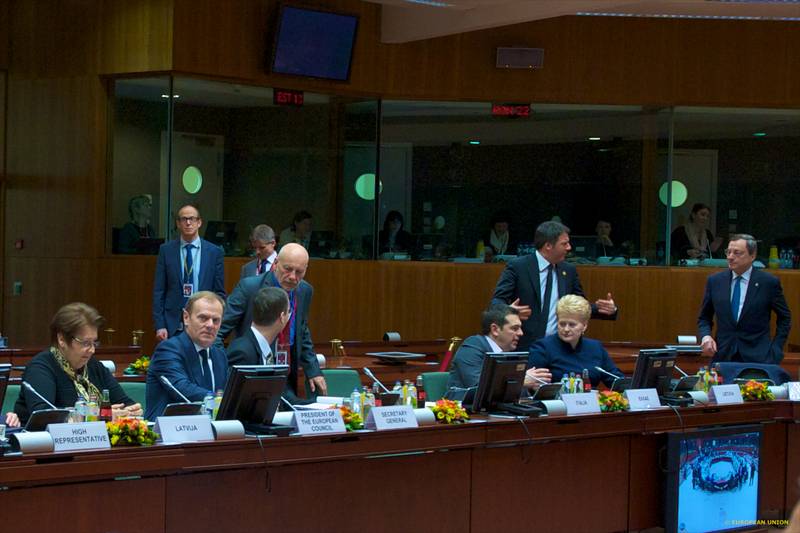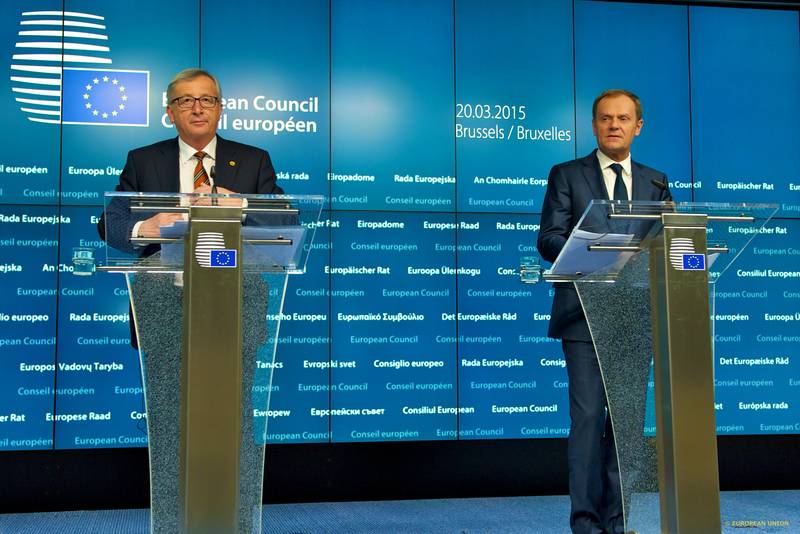EU's Fifth Pillar is Thin and Unsteady
Adelina Marini, March 20, 2015
Since the presentation of the project for creation of an energy union so far it has been referred to with grandeur. The two most frequently used phrases are that this is the most ambitious project of the EU since the establishment of the coal and steel community and that the free flow of energy across the EU is the Union's fifth freedom in addition to the other four: the freedom of movement of people, goods, services and capital. And now of energy. Alas, as expected, the leaders of the member states failed to offer sufficiently solid content for the big and glossy packing. The issue of the energy union was the first on the agenda of the spring EU summit in Brussels but proved the most difficult one. So difficult that many of the leaders had no desire to discuss the outcome with journalists.
And the problems with Greece came as a double six for the presidents of the European Council and the European Commission - Donald Tusk and Jean-Claude Juncker - who devoted only two questions to the thirsty for more details journalists in the packed press room in the Council because they were in a hurry for the mini summit with the prime minister of Greece, Alexis Tsipras, which lasted till the early hours of the next day (today, 20 March).
Entirely in the spirit of the complete lack of ambition of the Commission strategy, the leaders of the 28 member states confirmed the conviction that the establishment of a truly deeply integrated energy market in EU is a mission impossible. At least not now. In several bullets the prime ministers and presidents of the member states urge for acceleration of infrastructural projects, including interconnectors, for the peripheral regions, for the full enforcement of the existing energy legislation and for implementation of the legal framework for security of gas and electricity deliveries. Regarding the issue that promised, at least, some sort of a beginning of integration in this area as well, the leaders failed to be bold despite the excellent historic opportunity. This issue concerns the proposal the European Commission to check in advance all contracts, including with private companies, whether they are in line with the European energy legislation and with the energy security provisions.
The ambition of European Council President Donald Tusk before the beginning of the two-day summit was from all energy contracts to be removed all the clauses that prevent the establishment of a single energy market, like the clauses for re-export. As expected, the issue was a subject of the most heated debates. Most bilateral agreements with "our dominant supplier, Russia", are concluded on a long-term basis, sometimes for more than 20 years, the former prime minister of Poland said in the end of the discussions on the issue. This, according to him, is unhealthy. "Gas contracts should be about the economy, about business. They should not be used as political weapons", he said. In his words, the details about how exactly will the contracts be checked will be "very swiftly" set out by the Commission in a draft legislation.
The Bulgarian Prime Minister Boyko Borissov said, however, that these checks would affect only the intergovernmental agreements, not the private ones. Moreover, the checks will be voluntary. "A very thin balance has been reached and, in fact, this is what the main dispute was all about", he admitted responding to an euinside question. There were countries who were firmly against writing down that the Commission would check the contracts. Whenever there is a problem, the checks will be on a country-by-country basis, Mr Borissov added. The private contracts will also be declared but up to the level of commercial secrets which was a demand by many member states.
A similar formulation is too far from the ambition of a "fifth freedom" of the EU because the most vulnerable countries will continue to be not free and being blackmailed by Russia as happened to Bulgaria with South Stream. The thesis of the Bulgarian government is that it had done everything possible to play by the European rules for which it paid a heavy price. The problem is, however, that before the Commission launched an infringement procedure against Bulgaria, Sofia was trying in every possible way to circumvent the European rules. Very often the reason is pressure but in other cases there are pro-Russian lobbies or governments. This means that the check of contracts and therefore the participation of the Commission in negotiations on energy deals will be on a voluntary basis and will not affect the biggest and most influential member states which significantly undermines the bargaining  power of the Commission itself as it will practically play the role of the elder brother who will have nothing more to say than that a contract is in violation of the rules.
power of the Commission itself as it will practically play the role of the elder brother who will have nothing more to say than that a contract is in violation of the rules.
This creates uncertainty for the member state in question as well in terms of investments for energy projects because if currently there is a pro-European government in Bulgaria, for instance, later a pro-Russian could be elected. The strength of the energy union will depend mainly on whether the member states apply unconditionally the European energy legislation. However, the experience with the European semester as well shows that the rules can not only be circumvented but ignored as well. So, the energy union remains an ambitious project only in words. In terms of action everything remains as before.
 David Cameron, Angela Merkel | © Council of the EU
David Cameron, Angela Merkel | © Council of the EU | © Council of the EU
| © Council of the EU Jean-Claude Juncker, Donald Tusk | © Council of the EU
Jean-Claude Juncker, Donald Tusk | © Council of the EU